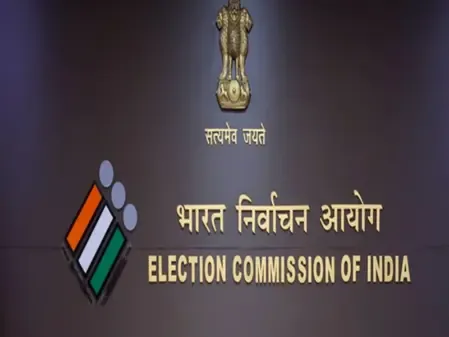Is AAP Truly the Face of Corruption and Plunder?

Synopsis
Key Takeaways
- BJP accuses AAP of corruption and exploitation.
- ED's seizure of properties amounts to Rs 12.25 crore.
- Satyendar Jain faces serious allegations linking him to disproportionate assets.
- Supreme Court upheld findings against Jain's associates.
- The political ramifications for AAP could be substantial.
New Delhi, Sep 24 (NationPress) The BJP has launched a fierce assault on the Aam Aadmi Party (AAP) following the Enforcement Directorate's (ED) seizure of properties valued at Rs 7.44 crore, linked to firms supposedly managed by former Delhi minister and prominent AAP figure Satyendar Kumar Jain.
In response to the ED's recent actions, BJP National General Secretary Tarun Chugh accused AAP of executing one of the most significant plundering schemes in the political history of the national capital.
Speaking to IANS, Tarun Chugh stated, "The true face of AAP, the emblem of corruption and exploitation, has been brought to light. Those who once promised a new political ethos are now mired in lavish corruption. They have constructed palatial structures while robbing the citizens of Delhi. Every offender will face justice; none will evade accountability. Those who have violated public trust for personal enrichment will find themselves behind bars."
The ED's actions, executed under the Prevention of Money Laundering Act (PMLA), 2002, are a result of a case initiated by the Central Bureau of Investigation (CBI) in 2017. The CBI had charged Jain with accumulating disproportionate assets from February 2015 to May 2017, during his term as a minister in the Delhi government.
In December 2018, a charge sheet was presented against Jain, his spouse, Poonam Jain, and several others. Earlier in March 2022, the ED had already attached assets worth Rs 4.81 crore in connection with the same case and submitted a prosecution complaint that a Delhi court acknowledged. With this latest attachment, the total value of confiscated assets now amounts to Rs 12.25 crore.
The ED revealed that following the 2016 demonetisation, Jain's close associates Ankush Jain and Vaibhav Jain deposited Rs 7.44 crore in cash as advance tax under the Income Disclosure Scheme (IDS). These funds were reported in the names of four companies that were later identified as being beneficially owned and controlled by Satyendar Jain.
Both the Income Tax Department and the Delhi High Court determined that the two associates were acting as benami holders on behalf of Jain. These conclusions were upheld by the Supreme Court, which dismissed their appeals.
Following this, the ED communicated its findings to the CBI, which subsequently filed a supplementary charge sheet that increased the estimate of Jain’s disproportionate assets.









